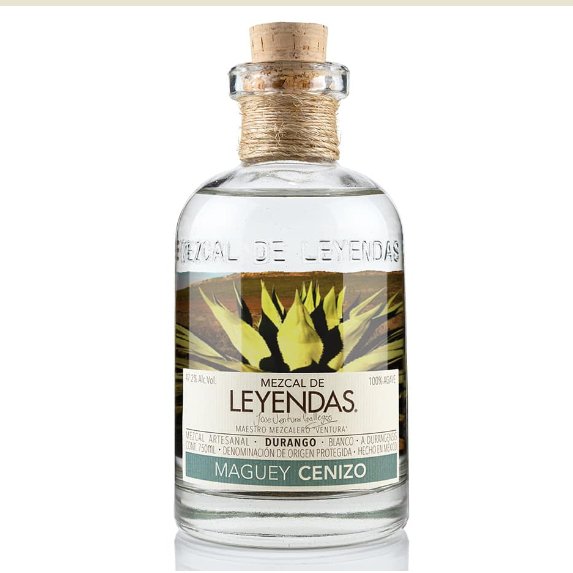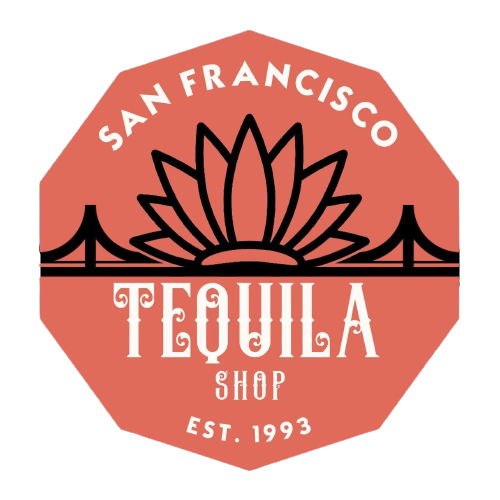Mezcal de Leyendas Maguey Cenizo 750ml
Mezcal de Leyendas Maguey Cenizo 750ml
Couldn't load pickup availability
Maestro 'Ventura' José Ventura Gallegos, a second-generation mezcalero, holds approximately 20 years of experience in artisanal mezcal production. Though he produces a remarkable mezcal with 'Gasparilla,' he prefers the 'cenizo' for its unique qualities.
The Maguey 'Cenizo' is an artisanal mezcal blanco made from 100% Agave durangensis, boasting an alcohol volume of 47.2%. This mezcal, available in 750mL bottles, is a product of limited production, ensuring each bottle is a testament to meticulous craftsmanship.
Tasting Notes
- This mezcal delivers an intriguing aroma of leather, wet clay, and grassy fields upon uncorking.
- The tasting experience offers intriguing buttered popcorn, coriander, and stone fruit notes.
This mezcal is created in Nombre de Dios, Durango, located in the semi-desert 'Altiplano duranguense' of northwest Mexico. Positioned at 1731 meters above sea level, this region has a maximum temperature of 37.5°C, an average of 16.3°C, and a minimum of -2.4°C. It receives about 450mm of annual precipitation.
The facility where mezcal or sotol is produced is commonly called a 'Vinata' in northern Mexico. The term 'Vinata' comes from 'vino mezcal' meaning 'mezcal wine'. Despite the location's challenging conditions, the 'Vinata' managed by Maestro 'Ventura' maintains a yearly production of approximately 12,000 liters, ensuring the quality and exclusivity of each bottle.
The production process for the Maguey 'Cenizo' mezcal involves intricate steps. It begins with cooking the agave in a roasting pit and then milling it using a mechanical grinder. The milled agave undergoes fermentation in ground-level wood vats before being distilled in a mixed copper and wood alembic.
The Maguey 'Cenizo' is made from Agave duranguense, the most widely used agave for mezcal production in Durango. These plants, primarily harvested from wild populations, are resistant to frost temperatures during winter. The Agave duranguensis yields about 1 liter of mezcal for every 20 kilograms, reaching maturity in 10 to 12 years.
Share

Customer Services is our #1 Job
Frequently Asked Questions
Is all your inventory online?
We try to keep the store as updated as possible, but we always get new shipments.
Since beer inventory changes rapidly, please call or email us to confirm the availability of what you're looking for.
If you don't see what you are looking for, send an email, and we'll check to see what Moose is hiding in the back room.
Why is beer available as in-store pick-up only?
Our temperature-controlled storage systems preserve beer's quality and flavor until pickup. By maintaining precise refrigeration, we protect each batch's unique characteristics and ensure customers receive the freshest possible product.
However, due to the challenges of maintaining consistent temperature during shipping, we exclusively offer in-store pickup for our craft beers.
Since beer inventory changes rapidly, please call or email us to confirm the availability of what you're looking for.
What is the difference between Tequila & Mezcal?
Tequila is a type of mezcal, much like how scotch and bourbon are types of whiskey.
Tequila and mezcal are both types of agave-based spirits that are popular in Mexico, but there are some key differences between the two. Tequila is made exclusively from the blue agave plant, which is primarily grown in the area surrounding the city of Tequila, about 40 miles northwest of Guadalajara. Mezcal, on the other hand, can be made from any type of agave plant, and is often made using traditional, labor-intensive methods.
One of the most noticeable differences between tequila and mezcal is their flavor. Tequila is typically smooth and subtle, with hints of fruit and spices, while mezcal has a more complex, smoky flavor that comes from the roasting of the agave hearts before they are fermented and distilled.
Another difference between the two spirits is their production process. Tequila is typically made using modern industrial methods, while mezcal is often produced using traditional techniques that have been passed down for generations. This can give mezcal a more authentic, artisanal character.
In general, tequila is considered to be a more refined and sophisticated spirit, while mezcal is often viewed as a more rustic and traditional drink. Both are popular in Mexico and are enjoyed around the world, so the best way to decide which one you like is to try them both and see which one suits your tastes.
Where do you ship to?
WILL NOT ARRANGE FOR SHIPPING TO THE FOLLOWING STATES: Arkansas (AK), Utah (UT), Mississippi (MS), and any other states or area where such shipments are prohibited by law.
It is important to note that by allowing us or the retailer to arrange the shipping, you are confirming that you are following all applicable laws and regulations in your state, city, and any other relevant jurisdiction related to the purchase, transportation, and delivery of alcoholic beverages, including spirits.
California Proposition 65 Warning
Drinking distilled spirits, beer, coolers, wine and other alcoholic beverages may increase cancer risk, and, during pregnancy, can cause birth defects.
For more information go to - www.P65Warnings.ca.gov/alcohol.

